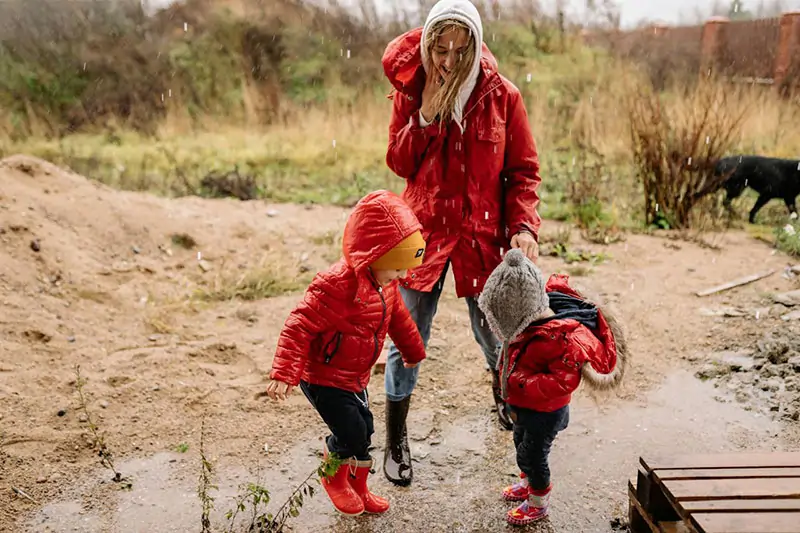Immunity Boosting Tips for the Family

A strong immune system can help you and your family build greater resilience against getting illness. If you do get sick, it also reduces the severity of symptoms: enabling the body to fight off existing illness and infections while promoting healing.
Between back-to-school bugs, the flu season and ongoing COVID precautions, keeping your family (and yourself) healthy isn’t easy, but a few lifestyle tweaks here and there can make all the difference.
Vitamins and Supplements
Supplements can’t replace a balanced diet, but they can give it a boost. Before introducing a new supplement, always consult your doctor to make sure it’s safe to take. For families focusing on children’s development, supplements for kids growth can provide essential nutrients to support healthy bone and overall growth, complementing a balanced diet.
- Beta Glucan: Found in mushrooms, yeast and cereals, beta glucan 1 3d can help to promote white blood cells and strengthen immunity.
- Vitamin D: The vitamin D we get from daylight can help prevent autoimmune illnesses, but where needed, a supplement can offer an added dose of sunshine.
- Omega-3: Typically found in oily fish, walnuts and chia seeds, omega-3 supplements can help to reduce inflammation in the body.
Prebiotics and Probiotics
Prebiotics are typically high-fiber foods which support the growth of healthy gut bacteria, while probiotics such as yeasts or bacteria commonly found in fermented foods fruits, vegetables and wholegrains help restore balance to the natural flora in the gut.
While supplements for both prebiotics and probiotics exist, more research is still needed into their impact on immunity and gut health, with some arguing that eating a healthy, well-rounded diet may be all you need.
Breastfeeding
The immune-boosting benefits of breastfeeding are well-documented, but it’s not always easy. If you can, keep nursing for as long as you and baby are comfortable, but if you are struggling, try not to worry.
Many mothers struggle with breastfeeding for a variety of reasons. The best alternative to breastmilk is formula, but it’s important to take the time to learn about which type of formula your baby needs so that they are getting the nutritional support they need.
Nutrition
A diet containing complex carbohydrates, proteins, polyunsaturated fats, fiber, vitamins and minerals is essential for maintaining healthy immunity. While this doesn’t rule out treats, indulging too often can have a negative impact.
Some studies suggest that a diet high in “junk foods” can lead to impaired immune function. According to Frontiers for Young Minds, a little in moderation is okay, but no more than 10% of your total intake per week.
Sleep
Hygiene isn’t just handwashing: sleep hygiene also plays a part in staying healthy and well. Sleep allows our bodies to repair and regenerate white blood cells, helping to fight cold and flu-triggering germs. However, for new parents and fractious kids, this is easier said than done.
There’s a wealth of tips on how you (and baby) can get more shut-eye, but most importantly, remember that nobody’s perfect. The house won’t always be spotless, the sleep schedule won’t always go to plan, and it’s ok to ask for help from friends and family, even if it’s just so you can catch a quick nap.
Sleep requirements for children vary by age and individual. For example: five-year-olds need an average of 10 to 13 hours, but some may need a little more. For teens with screens, establish a nightly “power down” routine for all blue-light devices, ideally one to two hours before bed.
Stress
Short bursts of cortisol produced by stress offer a temporary boost of immunity, but over time, too much can lead to inflammation, potentially leading to unhealthy coping habits that can further weaken the immune system, such as smoking.
A little stress is to be expected, but there are ways to stop it taking over. In addition to the basics (sleep, nutrition, exercise and socializing), learning to manage difficult feelings in a healthy way can help avoid passing anxieties onto your child while teaching them key emotional skills.
The Hygiene Hypothesis: Myth or Fact?
The “hygiene hypothesis” suggests that to build a healthy immune system, kids need exposure to germs, but according to experts, it’s not the whole story: exposure to some germs boosts overall immunity, but this doesn’t apply to those causing serious illnesses.
While over-sanitized environments can impair immune system development, good health and hygiene practices (including vaccinations) are still important. However, so are all the things that make childhood fun.
Some studies suggest that early exposure to pets increases tolerance to food allergies – while further research suggests that playing in nature offers exposure to a diverse range of microbiomes, helping to strengthen immunity. If you’re wondering how to keep your family healthy, the answer is all things in moderation, including the occasional mud pie.


